Zip wires, darts, wild swimming: why shopping centres are trying new ways to bring in customers
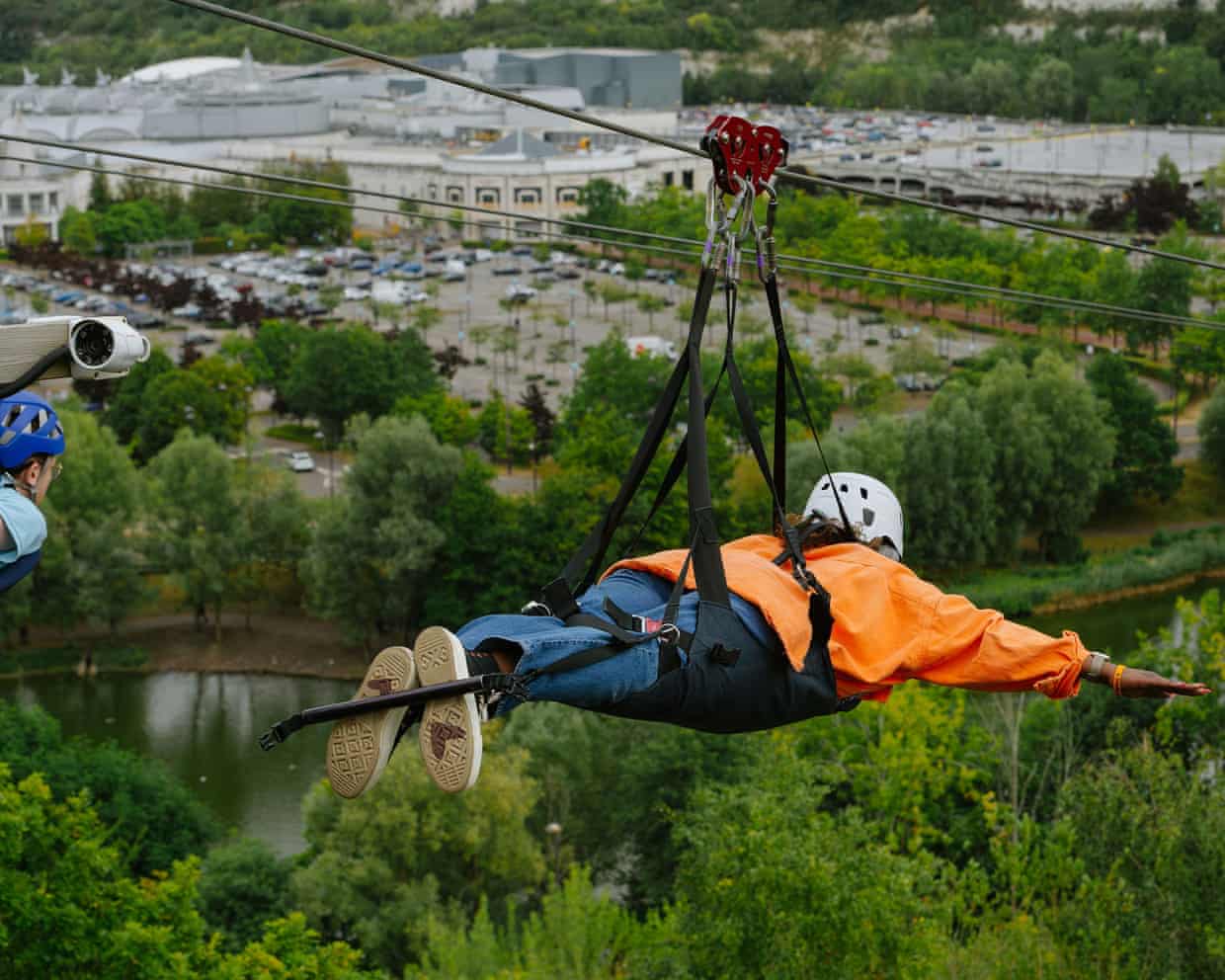
There was a time when the most active thing to do at a shopping centre was jostle to the front of the queue at Primark.These days, however, developers are bringing in sport and health-related activities from zip wires to cricket, football, rock climbing and even wild swimming to draw in consumers and use space no longer wanted by retailers.While the trend for competitive socialising, such as crazy golf, darts or bowling is well established and gyms are commonplace in shopping centres, landlords are getting more creative and adventurous in the type of activity they are offering as they battle lacklustre interest in physical shopping.The activities are varied: Toca Social hosts diners watching and playing football in three shopping malls.US group Five Iron, which blends hi-tech golf simulators and coaching with a bar, has signed up for the first of at least 10 UK sites, at Broadgate in central London.
Even the zip line adventure operators Zip World and Go Ape are understood to be talking to landlords about adding experiences to shopping centres and retail parks.Such operators are helping to fill the gaping holes in shopping malls after the closure of hundreds of department stores and other big retailers after the switch to online shopping and more working from home.A fifth of the former Debenhams sites remain vacant, for example, more than four years after the department store exited the high street, while several former House of Fraser shops still stand empty.Footfall has fallen in all but three of the last 12 months in shopping centres and was down 0.9% in October, according to the British Retail Consortium survey with monitoring firm Sensormatic.
While the big shopping centres continue to do well, smaller, less successful malls are suffering because chains want fewer but larger stores.About 60 of the UK’s 500 bigger shopping centres are likely to be razed completely, and a further 200 could be partially demolished, analysis showed last year.Retailers had historically paid more rent per square foot than leisure operators, the diminished demand for retail space has narrowed the difference and many deals are now tied to turnover so that landlords quickly feel the pain if a shop is unsuccessful.Some centres have gone almost all in on sport and leisure.The former Centre Court shopping centre has been reinvented as Wimbledon Quarter – not far from the site of the annual tennis championships – under its owner Romulus, including an upmarket gym and members’ club, Third Space, and sports operator The Golf Groove.
In Cardiff, the former Queens Arcade is in the process of being reinvented as a “leisure mall” with live performances, sporting areas – courts for the increasingly popular padel – and interactive exhibitions and theatrics using digital projection.Vivienne King, the chair of the executive board at shopping and leisure centre body Revo, says: “There has been a clear shift in what people expect from destinations, focusing more now on experience than ever before.“It’s about creating memorable, shared moments for families and friends.These kinds of experiences encourage longer visits, repeat trips, and a deeper connection with the destination, so they are without doubt both commercially effective and culturally resonant.”King adds: “Gen Z and millennials in particular clearly want to focus more on treating themselves, or what you might call ‘self improvement’, which can even include things like yoga studios and immersive play.
”Bruce Findlay, the managing director of retail at LandSec, the owner of Bluewater, says: “Wellness is more and more to the fore.” The vast Kent shopping centre could soon host an even broader range of activities, including an outdoor events arena that could hosts gigs or theatre, padel courts and potentially even rollercoasters to draw visitors from further afield.Such experiences can’t work everywhere – some centres will not have sufficient space, indoor or out, or the right ceiling height to house experiences such as rock climbing or zip wires.Wimbledon Quarter’s climbing wall operator closed last year, citing problems with the space and difficulty in attracting enough visitors, for example.While Bluewater has lots of space, LandSec has also been prepared to completely redevelop more urban centres to fit in activities.
A former Debenhams at its Southside centre in Wandsworth, south London, has been transformed by the leisure operator Gravity, bringing a mix of go-karting, mini-golf and darts.A section of floor was knocked out for the climbing wall operator Parthian.Sign up to Business TodayGet set for the working day – we'll point you to all the business news and analysis you need every morningafter newsletter promotionFindlay says people are hungry for new ideas and “creating wonder” with events such as Europe’s biggest bouncy castle in Braintree, Essex, which attracted 10,000 people a week.He says such experiences offer a chance for families to connect and get away from staring at screens.“We are really tapping into social, outdoor play,” he says.
“It’s things you can’t do online.It’s that simple.”Katie Wyle, a director at Unibail-Rodamco-Westfield, which owns the Westfield shopping centres in east and west London, says its leisure provision has grown by 39% since 2022.“People are craving an interactive experience rather than something passive,” she says.“It is about spending time, and money and then getting the selfies for afterwards.
”Wyle says the shift towards more working from home means people are now “wanting to be able to do everything that day” in a handy location when they do come into a city.On top of sporting activities and cinemas, Westfield has lined up the 8,000 sq ft (743 sq metre) tech-enabled gaming experience Activate in London and will open the Wake the Tiger art experience.The change in consumer demand has not only drastically altered the picture for landlords, but also sports operators.Jo O’Boyle, the marketing director of Go Ape, says it has considered moving beyond its park and forest locations.“It would have to be the right space,” she says.
“We really need footfall and an almost complementary offer such as bike riding or forest walks.If we could replicate that, it is definitely something we would be interested in.”Third Space has five of its 13 clubs in former department stores and forms part of the reinvention of the former Whiteleys shopping centre in Bayswater, London, where it will offer a martial arts dojo alongside cycle and yoga studios, steam rooms and a sauna.Colin Waggett, the chief executive of Third Space, says it is being offered high-quality former retail space that landlords are struggling to fill.“We are creating an attraction that is right for the here and now and what people want to be doing with their lives.
With working from home, people want to get out of the house and go and do something,” he says,
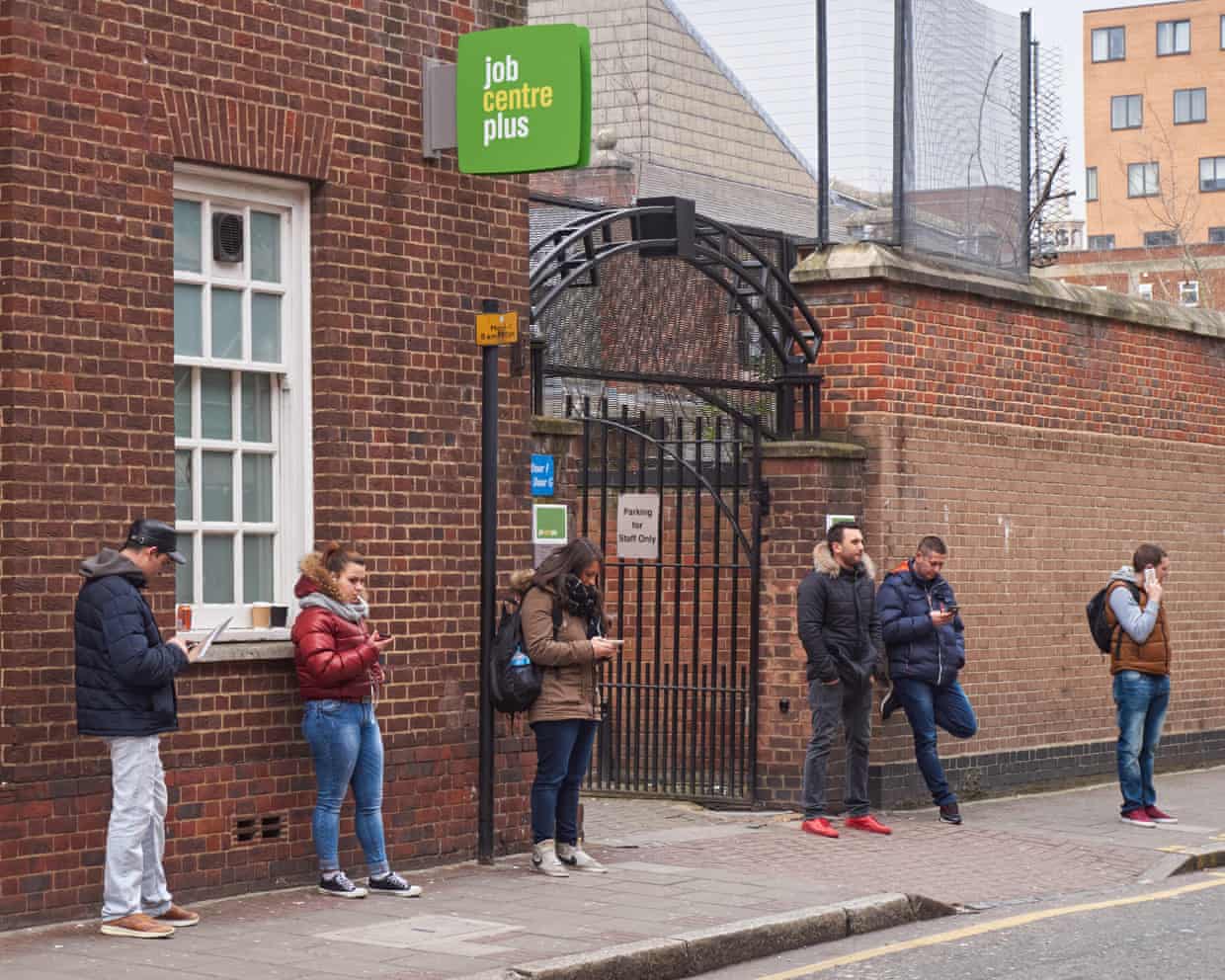
Half of all UK jobs shed since Labour came to power are among under-25s
Keir Starmer has been warned that Britain’s youth are in danger of becoming a “lost generation” on his watch as it emerged almost half of all jobs shed since Labour came to power are among the under-25s.With the government under fire before the autumn budget, Guardian analysis shows the dramatic leap in UK unemployment to the highest levels since the Covid pandemic is being fuelled by a youth jobs crisis.As many as 46% of the 170,000 jobs lost from company payrolls since June last year are from those under the age of 25 – the equivalent of more than 150 jobs lost per day.David Blunkett, the former Labour education secretary, said that while the government was taking action there was a danger an entire generation of young people would be let down.“I think we’ve got to get our act together

‘I have saved exactly £0’: how soaring costs have hit Britons’ nest eggs and pensions
Andrew, a writer in his mid-30s from Essex, would be considered middle class by most, but his financial setup is precarious.“I have £4k in my savings account, and around £4k in stocks and shares. With a mortgage, childcare fees and other living expenses to cover, our monthly outgoings are always at least £2,800. Our savings would quickly vanish if our household income ceased,” he said.Andrew has managed to save £30,000 into a workplace pension, but feels unable to continue saving at the moment

Zip wires, darts, wild swimming: why shopping centres are trying new ways to bring in customers
There was a time when the most active thing to do at a shopping centre was jostle to the front of the queue at Primark. These days, however, developers are bringing in sport and health-related activities from zip wires to cricket, football, rock climbing and even wild swimming to draw in consumers and use space no longer wanted by retailers.While the trend for competitive socialising, such as crazy golf, darts or bowling is well established and gyms are commonplace in shopping centres, landlords are getting more creative and adventurous in the type of activity they are offering as they battle lacklustre interest in physical shopping.The activities are varied: Toca Social hosts diners watching and playing football in three shopping malls. US group Five Iron, which blends hi-tech golf simulators and coaching with a bar, has signed up for the first of at least 10 UK sites, at Broadgate in central London

About 1m Ford diesel cars sold in UK with defective emissions controls, court told
About a million Ford diesel cars were sold in the UK with serious defects in components supposed to curb toxic exhaust emissions, the high court has been told.The highly polluting vehicles were produced and sold between 2016 and 2018 after Ford’s engineers became aware of the issues, and many were never formally recalled or fixed, lawyers said.The claims came in evidence submitted in the legal action on behalf of 1.6 million diesel vehicle owners against five car manufacturers, including Ford, for allegedly using “defeat devices” to cheat emissions tests for nitrogen oxides (NOx).Parts of the emissions control systems as calibrated by Ford were discovered to become less effective when “poisoned” by sulphur in fuel during driving, the court heard
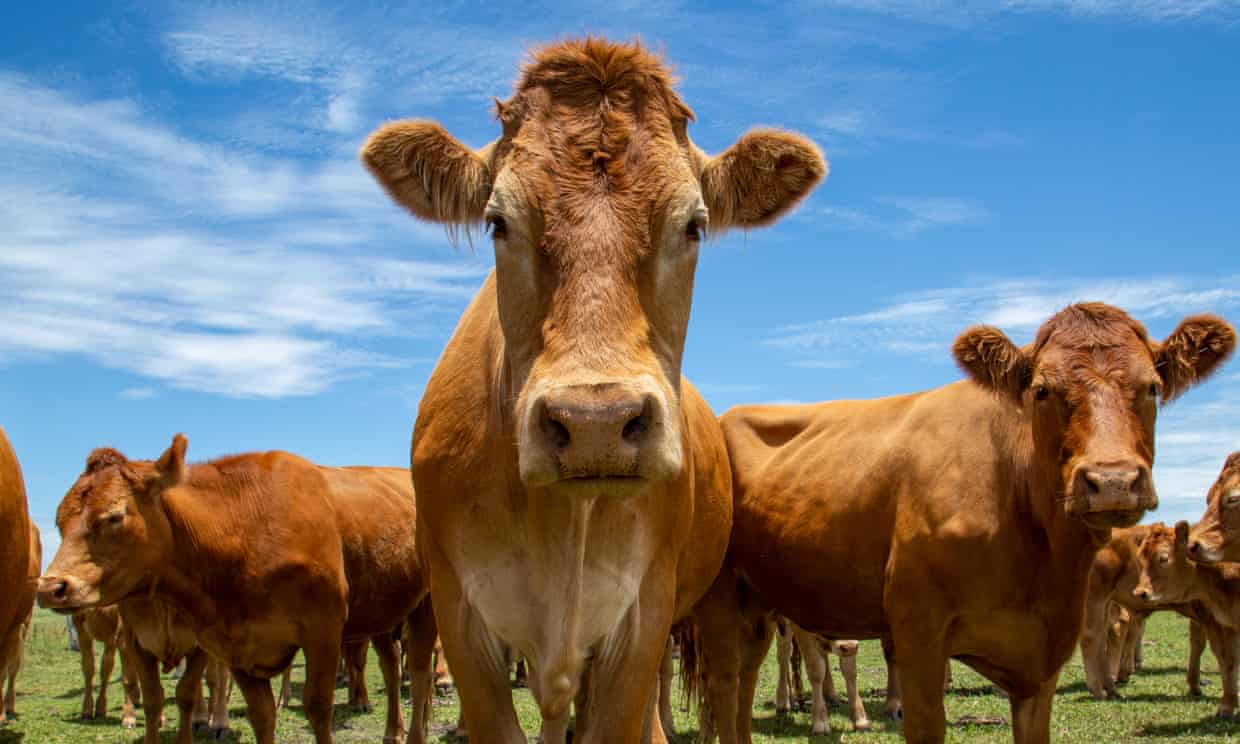
Australia welcomes Trump’s removal of tariffs on beef and other food imports
The Australian government has welcomed the Trump administration’s removal of tariffs on beef and other agricultural exports to the US.After previously insisting his import duties were not fuelling inflation, the US president, Donald Trump, on Saturday morning Australian time signed an executive order reversing tariffs on food imports, including beef, coffee and bananas.Trump, who is facing pressure over rising consumer prices, conceded in the order that “current domestic demand for certain products, and current domestic capacity to produce certain products” had influenced the decision.Last year, meat was Australia’s second largest export to the US, behind only non-monetary gold. Since Trump’s tariff regime came into effect in April, Australian producers have been charged a 10% export duty on most goods, including beef
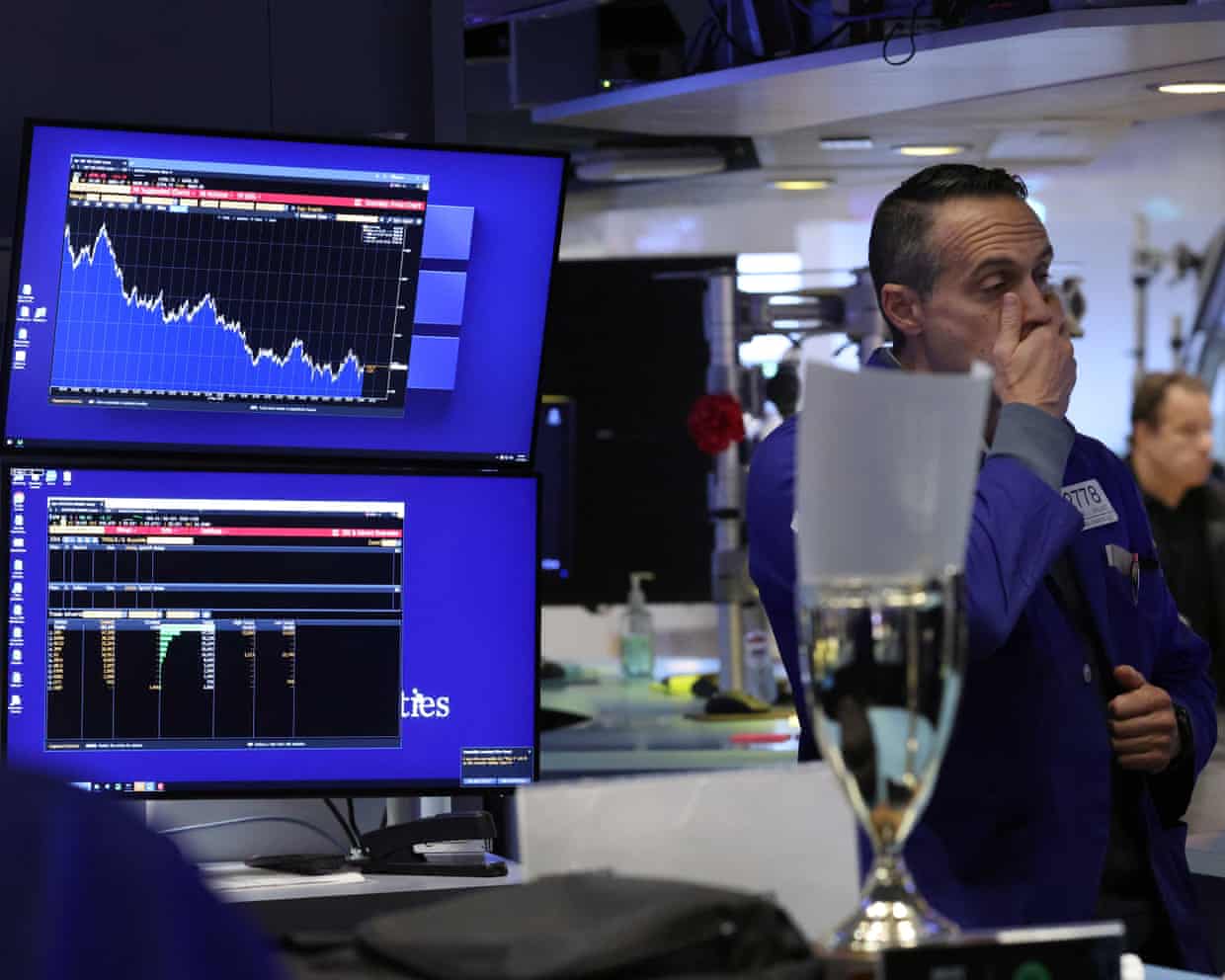
Global markets struggle after tech sell-off and fears over Chinese economy
Global markets suffered another day of volatile trading after a tech sell-off that fuelled Wall Street’s worst day in a month and weak economic data from China showed an unprecedented slump in investment.The FTSE 100 fell by 1.1% in London, closing down about 100 points at 9,698, as bellwether banking stocks tumbled. Barclays, Lloyds and NatWest slumped between 2.7% and 3

UK budget watchdog in danger of strangling economic growth, says TUC boss
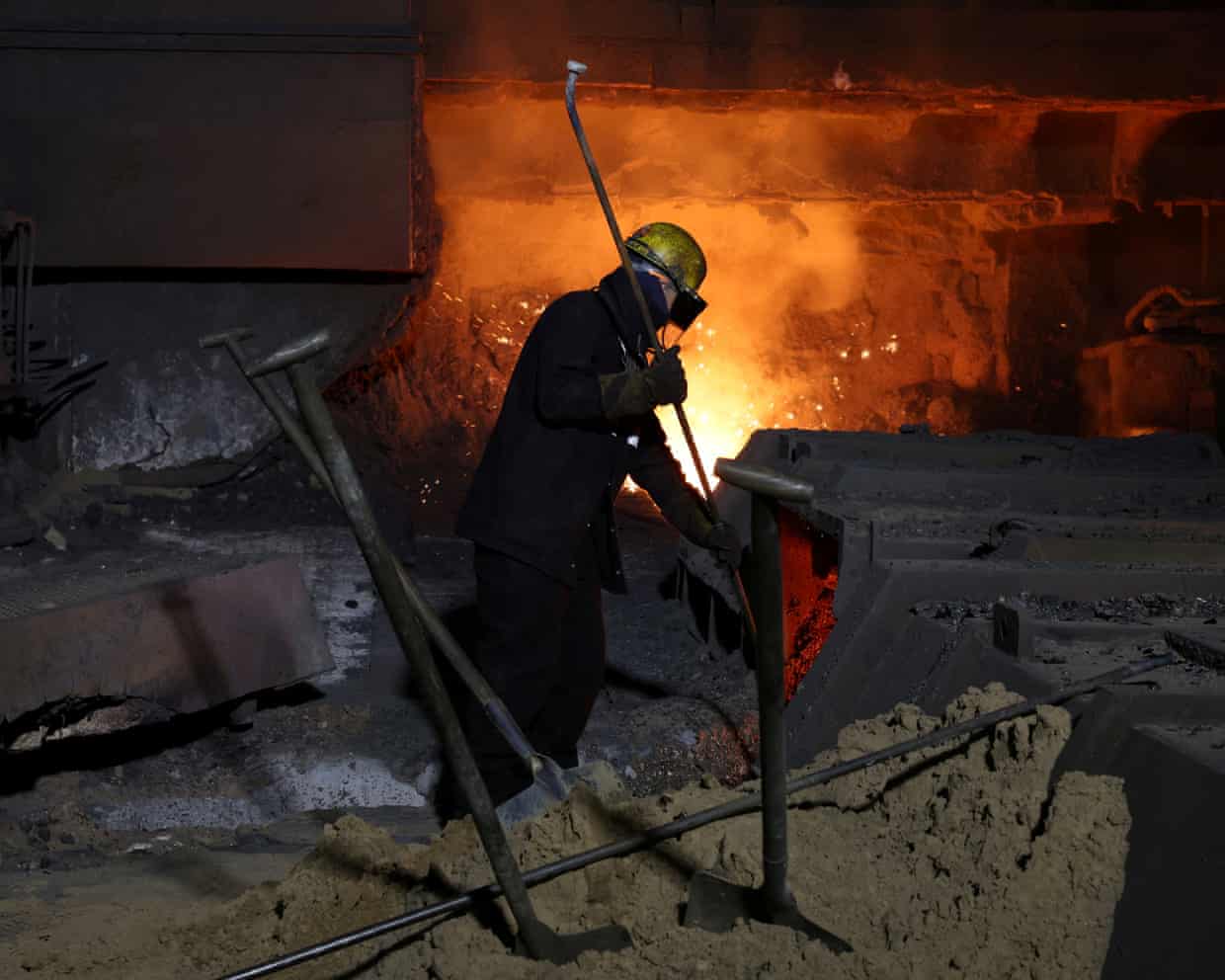
Business secretary backs shift to electric arc furnaces at British Steel plant

Father of teen whose death was linked to social media has ‘lost faith’ in Ofcom
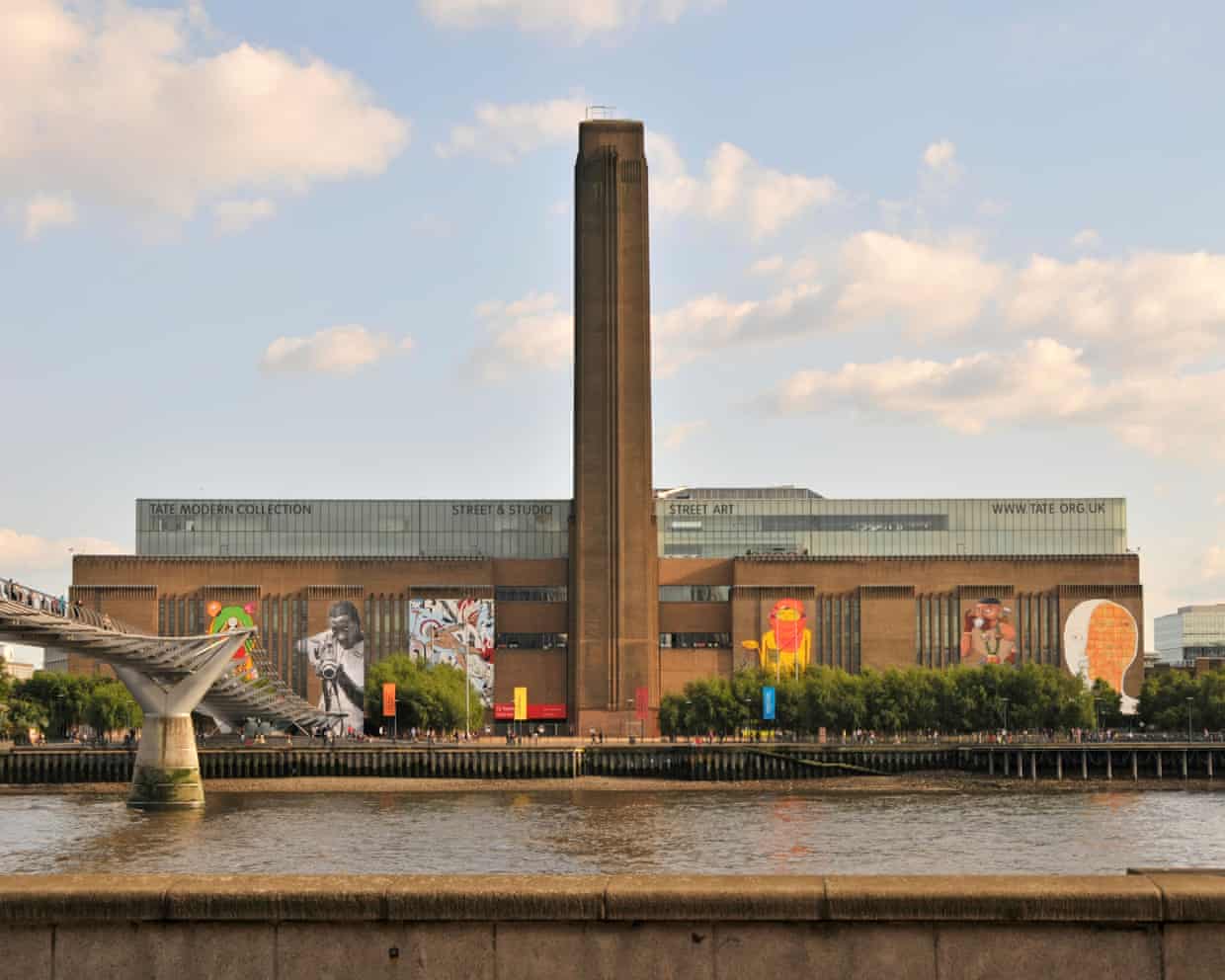
Personal details of Tate galleries job applicants leaked online

Ollie Pope believes pressure on England place will push him to deliver in Ashes

England have become something ugly, brutish and formidable to play against | Andy Bull